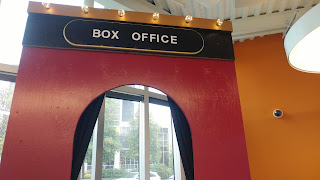Black Panther and Identity
Images on big screens in movie theatres and small home
screens, should not determine how kids are brought up and how they value or
de-value themselves, but they do.
 They identify with movies about two kids, boy and girl, in a
happy home with two cars in the driveway in a leafy suburb in Connecticut or
North York in Toronto. If they see
someone who looks like them robbing a bank, they call him one of the bad
guys.
They identify with movies about two kids, boy and girl, in a
happy home with two cars in the driveway in a leafy suburb in Connecticut or
North York in Toronto. If they see
someone who looks like them robbing a bank, they call him one of the bad
guys.
Kids that grow up seeing images that look like their
parents, brothers and sisters, uncles who are mayors, senators and supreme
court judges put a high premium on themselves.
 They identify with movies about two kids, boy and girl, in a
happy home with two cars in the driveway in a leafy suburb in Connecticut or
North York in Toronto. If they see
someone who looks like them robbing a bank, they call him one of the bad
guys.
They identify with movies about two kids, boy and girl, in a
happy home with two cars in the driveway in a leafy suburb in Connecticut or
North York in Toronto. If they see
someone who looks like them robbing a bank, they call him one of the bad
guys.
They recognise that life is about opposites. There are good and bad guys period. Unfortunately, black and brown kids routinely
see themselves in movies and novels as the bad guys, as if God gave them black
eyes, skin and stay-in-one-place hair to be criminals, baby mamas, security
guards, drug addicts, drug pushers and welfare recipients.
That is the movies.
High profile individuals like former U.S. First Lady Michele Obama,
always remind the world that they are not the first. There are millions of successful families
that are happy in their black skin and work extra hard to teach kids that they are
made in God’s image and that they should tick human being in the identity box. That is the problem with religion. It doesn’t celebrate nature, which is an endless
garden of flowers, that includes black velvet petunias, roses, lilies, or dahlias.
The Black Panther movie box office success can be attributed
to many things. Identity is one of
them. People continue to buy tickets,
not because of Lupita Nyong’o, a woman who was brought up to be a perfect
circle, but because cinema-goers see themselves on the screen.
They supported sitcoms like The Cosby Show, The Fresh Prince
of Belair, Living Single, Everybody Hates Chris, Ava DuVernay’s movies, Tyler
Perry’s, Lee Daniel’s, Ice Cube’s, Spike Lee’s ground-breaking projects, and
other movies that came before Black Panther.
I’ve never had a problem with identity because we were loved,
not only by parents, but by aunts, uncles, cousins, grandparents, teachers, bus
drivers, nurses, store owners, everybody in the community. We were naughty like all kids but there was a
price to pay. Elders disciplined or
reported us because everybody knew where we belonged.
I took that for granted until I went back to Africa after
many years. A little girl remarked in
Zulu,
“Ufana no Gugu.”
“Ufana no Gugu.”
“She looks like Gugu.”
Gugu is my niece and her name means the precious one. She knew about me although I was not there
because she grew up being told about the chain.
I look like my brother, who looks like my father, who looks like
grandfather. The list goes on.The Black Panther U.S. box office is important because the producer, Disney/Marvel is American, but they also monitor the overseas box office. Impressive ticket sales include South Korea, where some scenes were shot.
Directed by Ryan Coogler, the movie is raking in some serious
change because black and brown people in Africa, Brazil, Canada, Caribbean, Asia,
Ireland, Germany, Italy, everywhere are mesmerized.
‘He looks like me.’
By: Nonqaba waka Msimang.




Comments